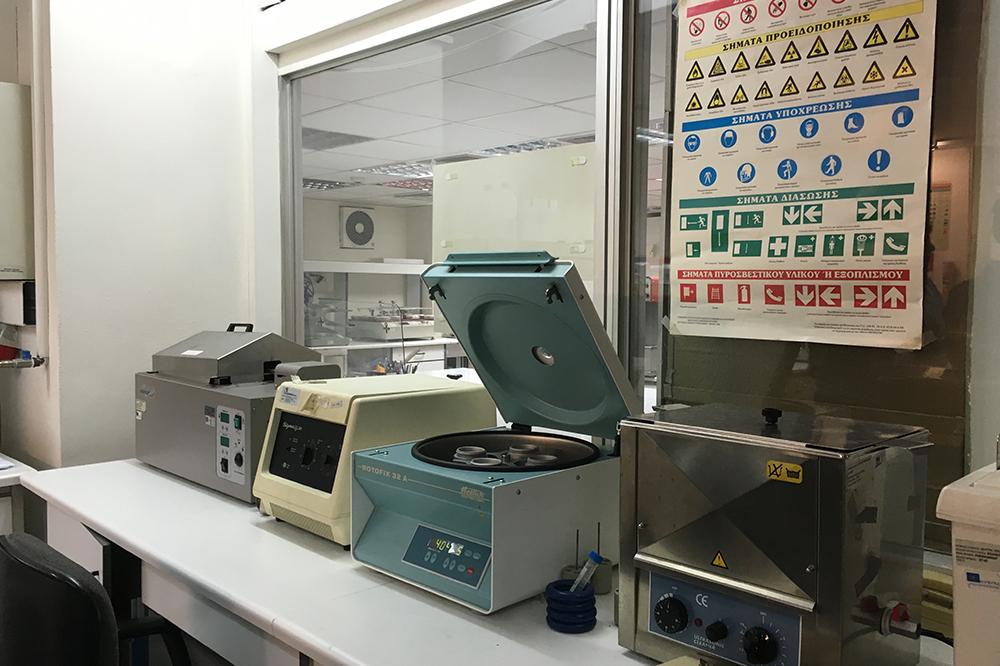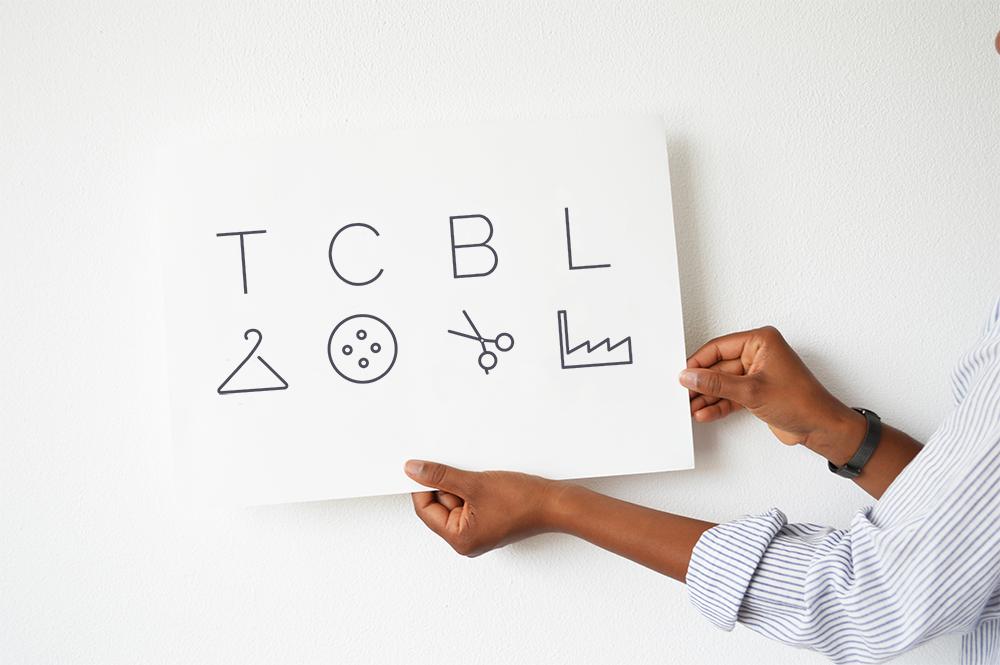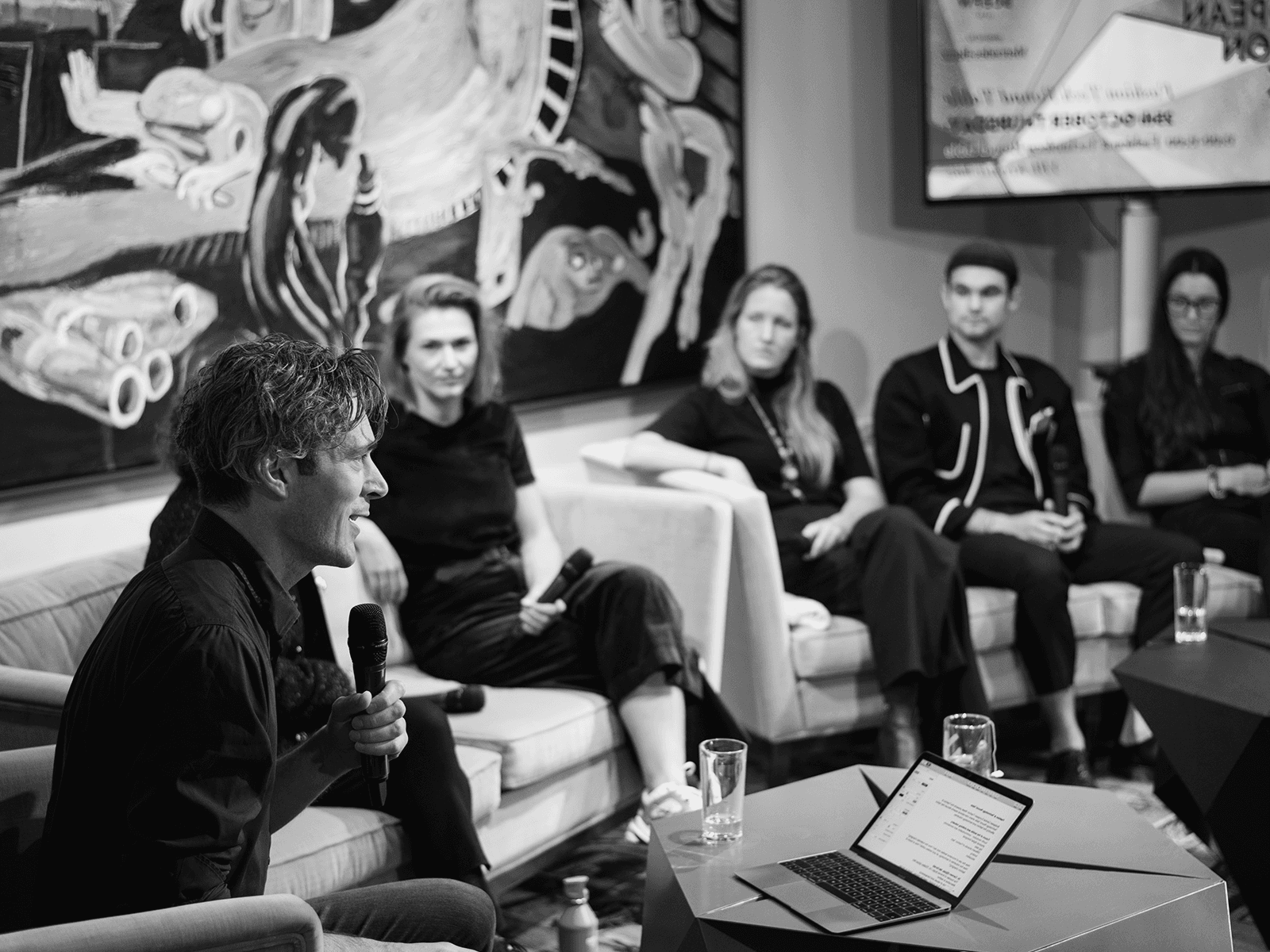In the Textiles and Clothing Business Labs project, Waag works with partners from all across Europe to share knowledge while exploring alternatives for the textile and clothing industry. During a meeting in Athens, we visited two exciting partner venues. Our partner, Mirtec (Materials Industrial Research and Technology Development Centre), will act as a space for digital fabrication, and Impact Hub Athens will hopefully also be involved in the project.
Exciting places to explore
The Mirtec venue is not immediately visible when walking across the city. After entering an unassuming building, we suddenly plunge into a lab full of marvelous machines for testing textiles and flexible materials. There were machines to test what a material is made of; to simulate weather conditions; and to check for the presence of heavy metals. Mirtec is not directly involved with fashion yet, but they can provide this project (and thus the ecosystem) with technical knowledge. They will also open their doors to designers, textile and clothing enterprises, students and researchers. In the lab, they will focus on textile processing techniques (mostly wet treatments) and methods of textile testing. Additionally, they will produce tutorials; consult textile and clothing enterprises; and provide open days and workshops for students, researchers and entrepreneurs.
The Impact Hub, on the other hand, is located in a beautiful 19th century building in the heart of Athens. There are around 80 Impact Hubs around the world and, although they are all connected and operate under the same ideology, the Hubs differ slightly due to their locally-oriented nature. Impact Hub Athens is an innovation lab, a social enterprise community center, and a business incubator. In other words, they bring together people who want change the way business is done and influence what happens in Athens for a better and more sustainable future.
The Hub offers and facilitates a series of programs for all stages of entrepreneurial activity; provides networking events, incubation programs, competitions, investor pitches; and offers a space to work and meet. Upon entering the hall, the first thing that draws one's attention is a large plaque with images of the people who are part of the Hub community and the projects they are working on. These projects address social, economic, environmental and cultural issues. In the basement, one can peruse a comics library upstairs, there is a large open, work space.
While setting up our own textile labs at Waag (starting this summer), it is inspiring to see the other labs and connect to people with the same energy, urge for exploration within the industry, and willingness to support innovation across Europe. These labs will gradually begin interacting with each other as well as other entities within the ecosystem, sharing knowledge and values while exploring alternatives for the textile and clothing industry.


